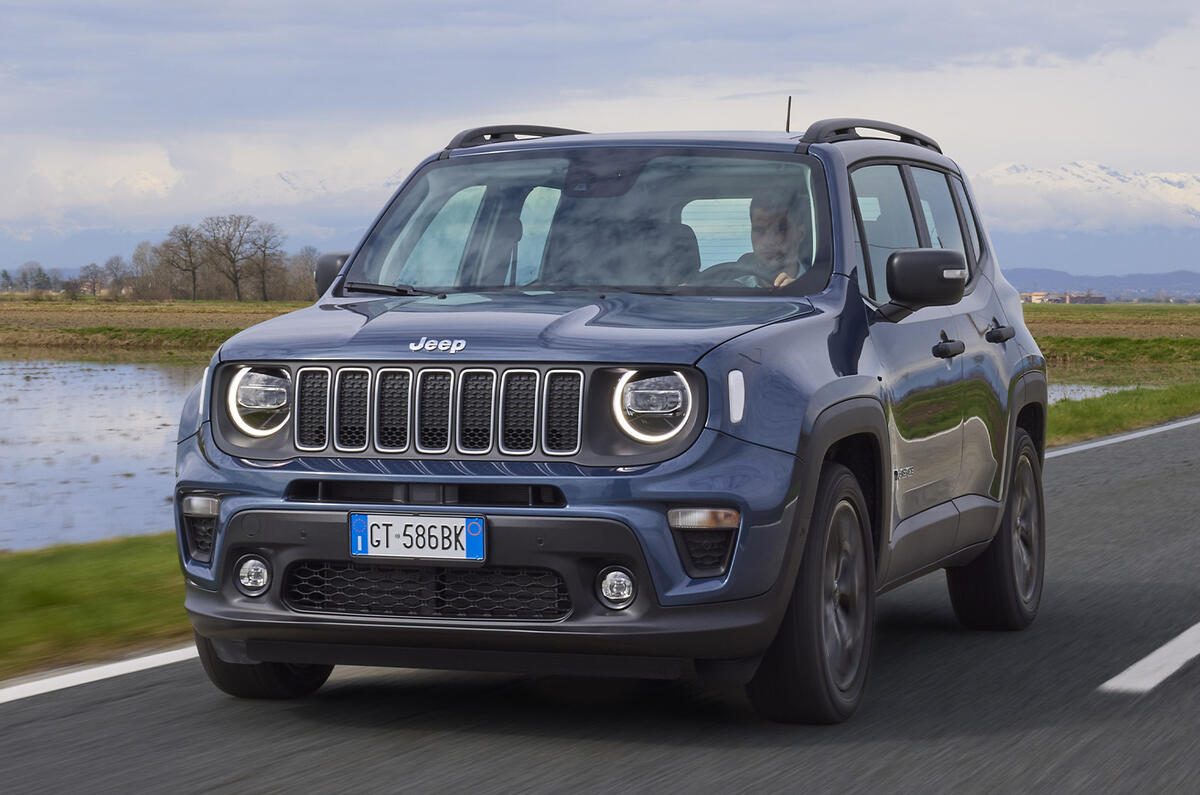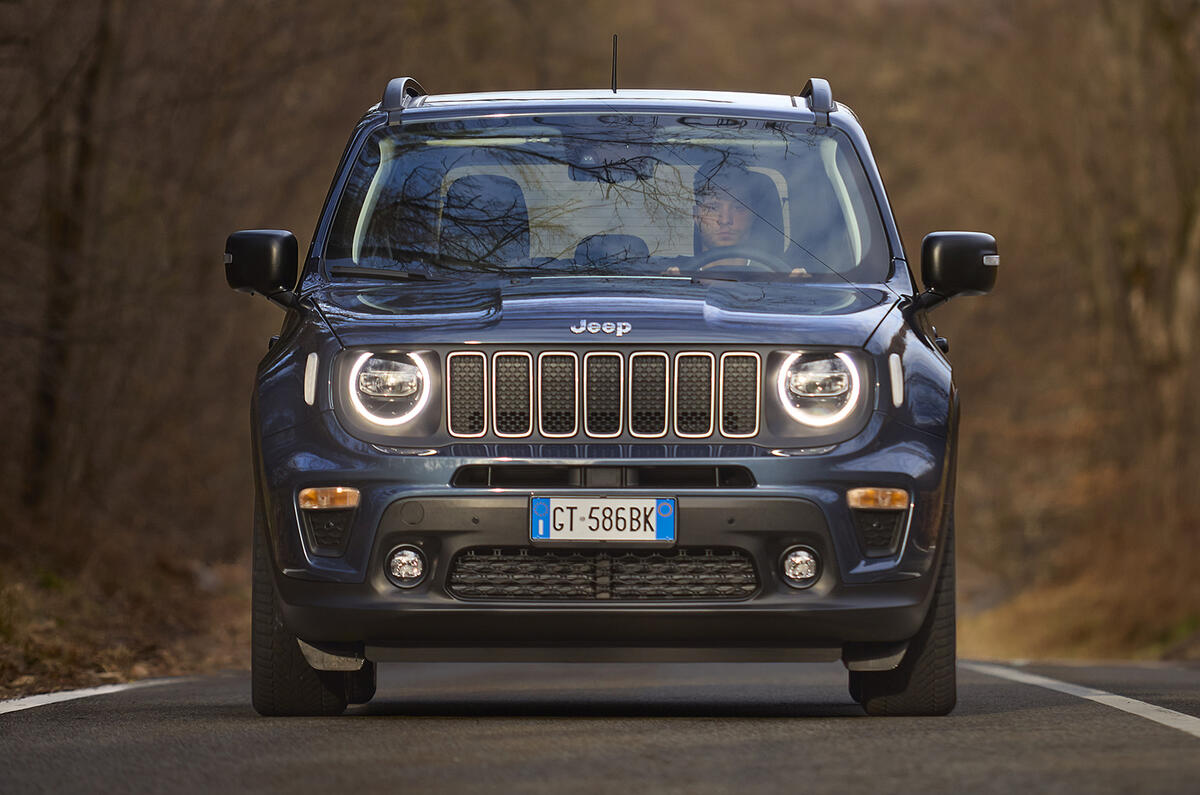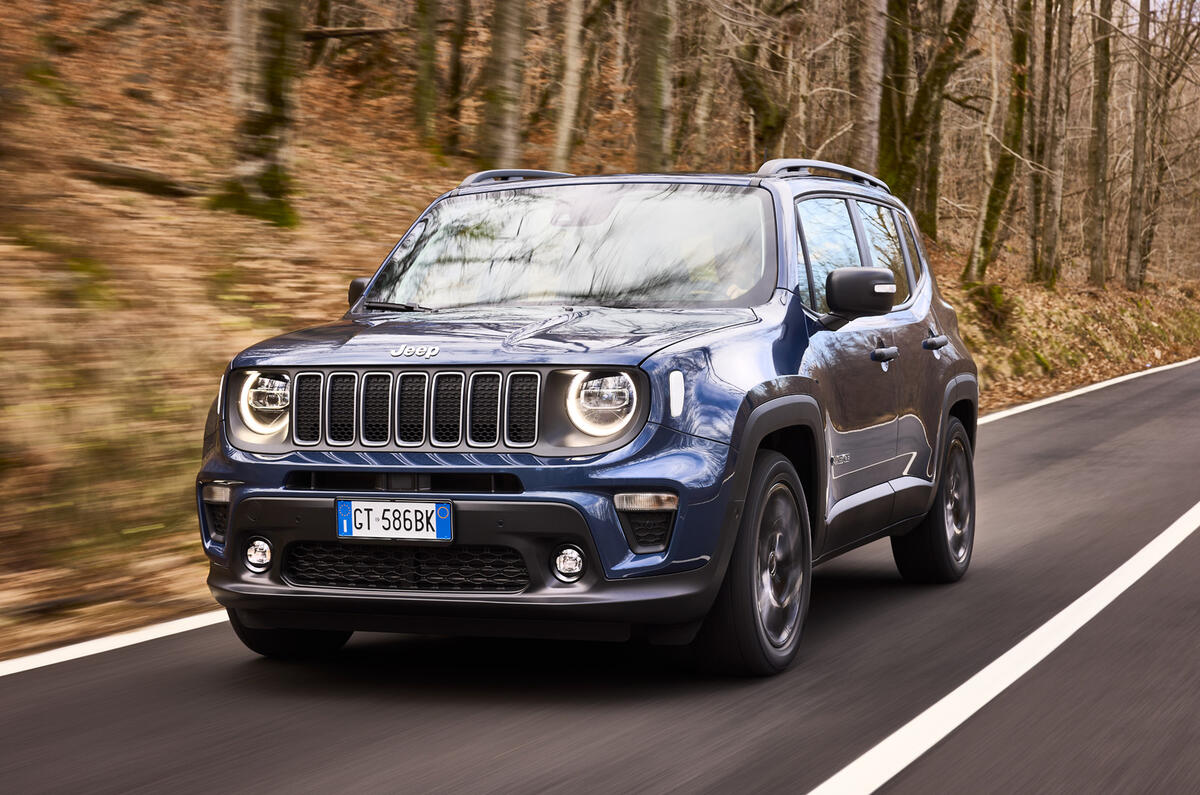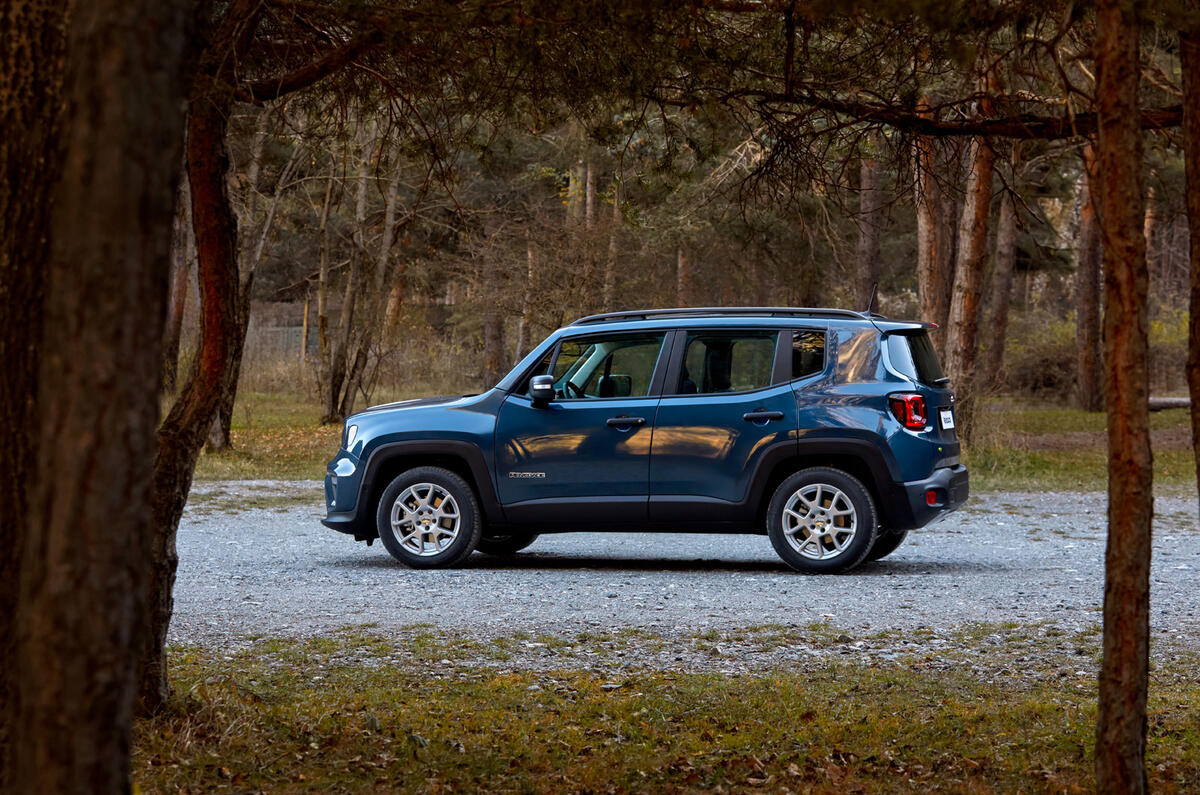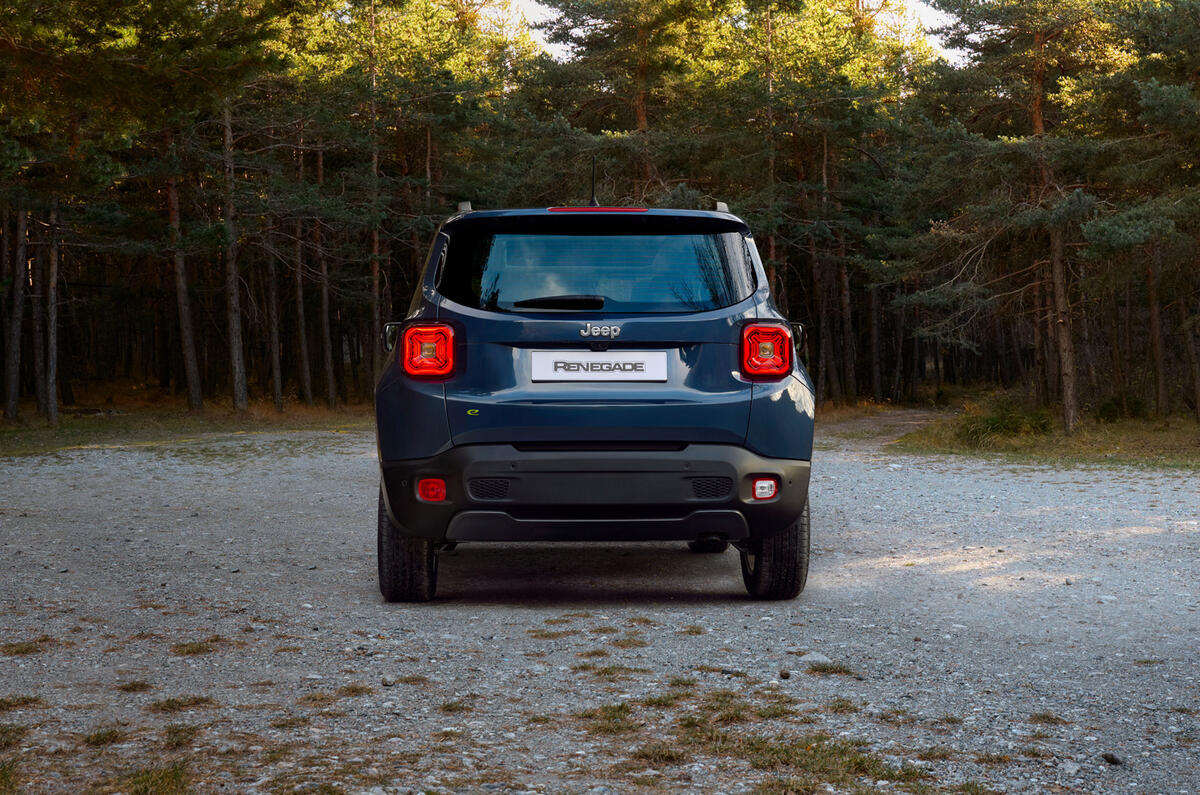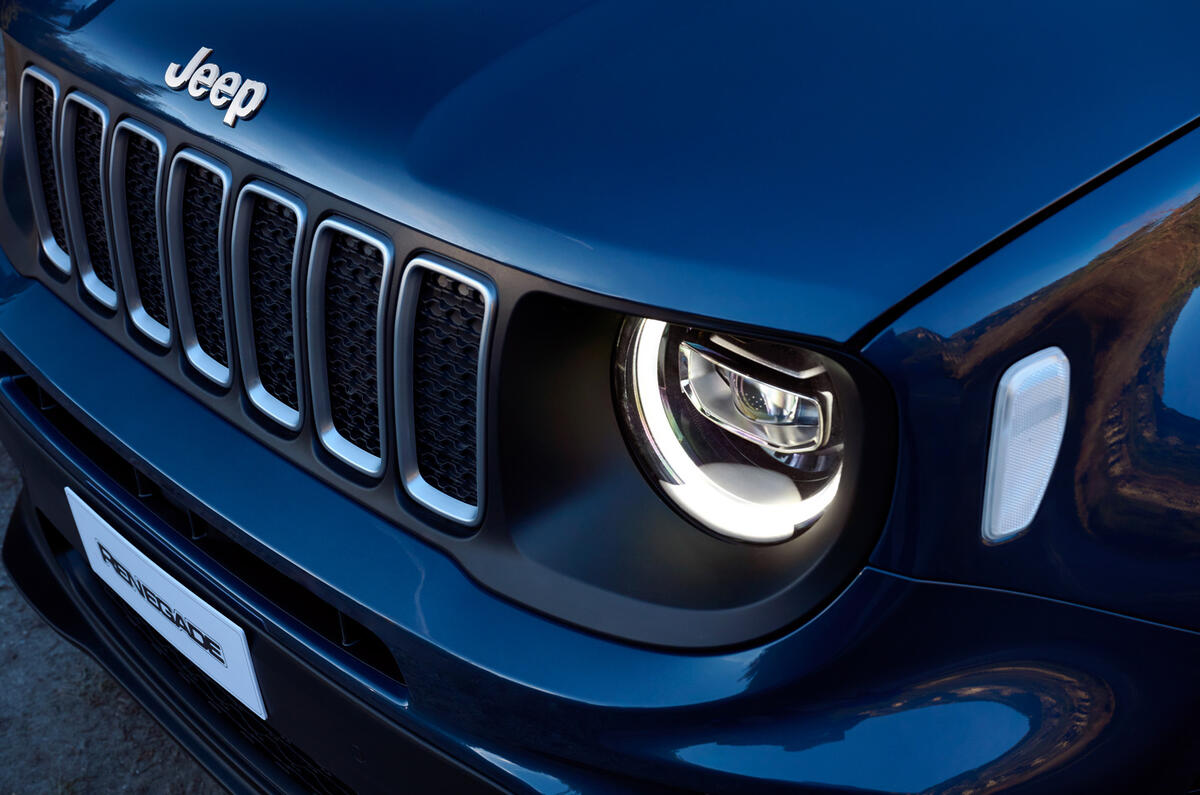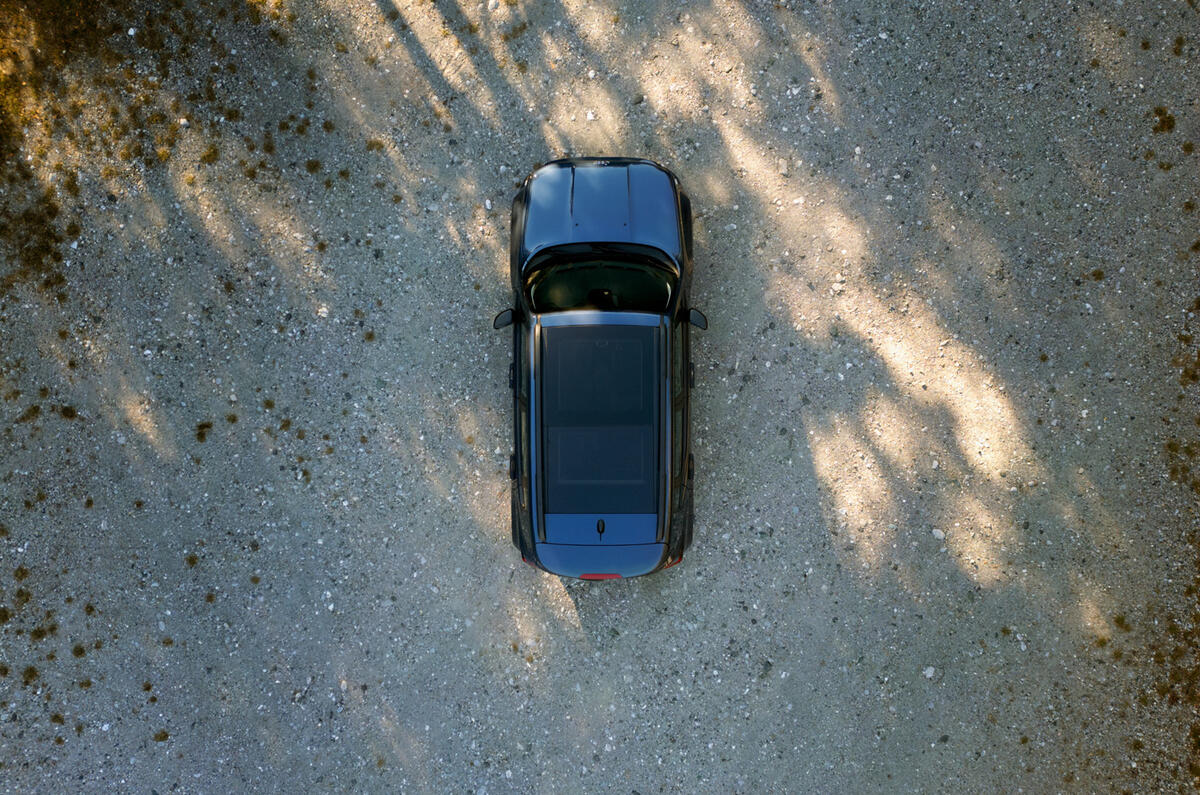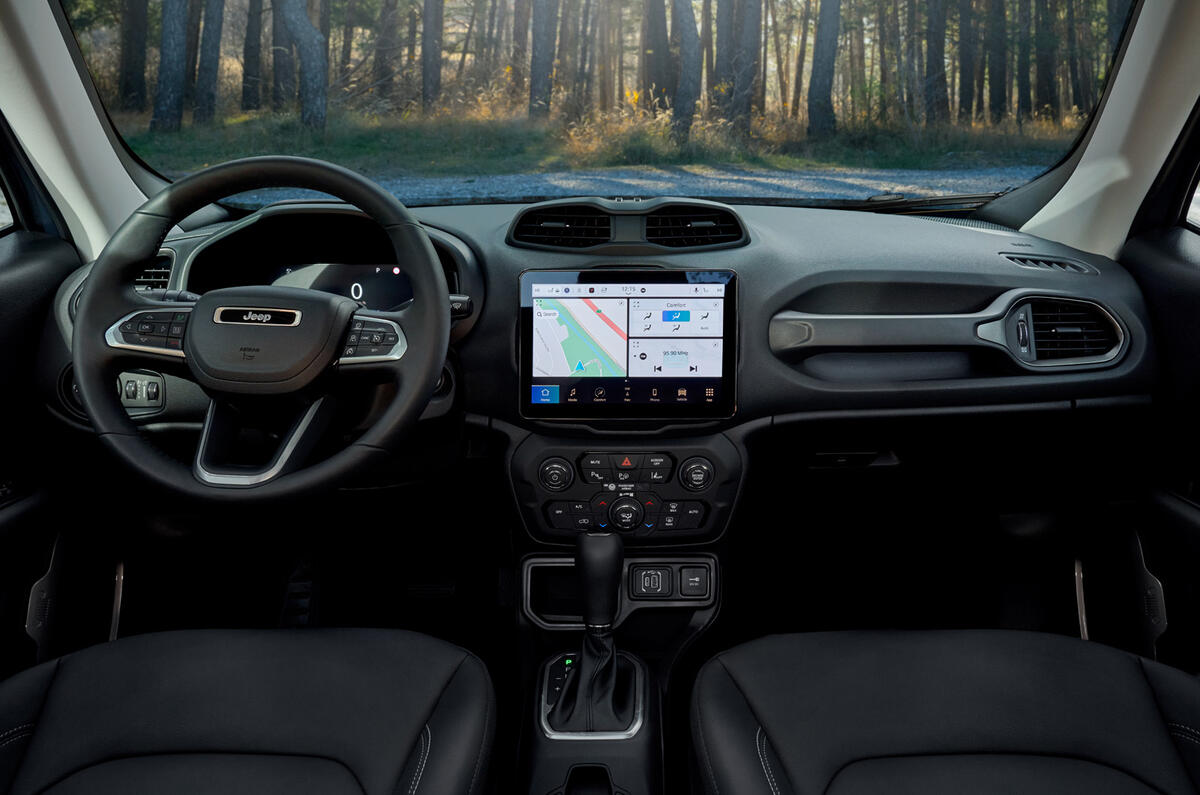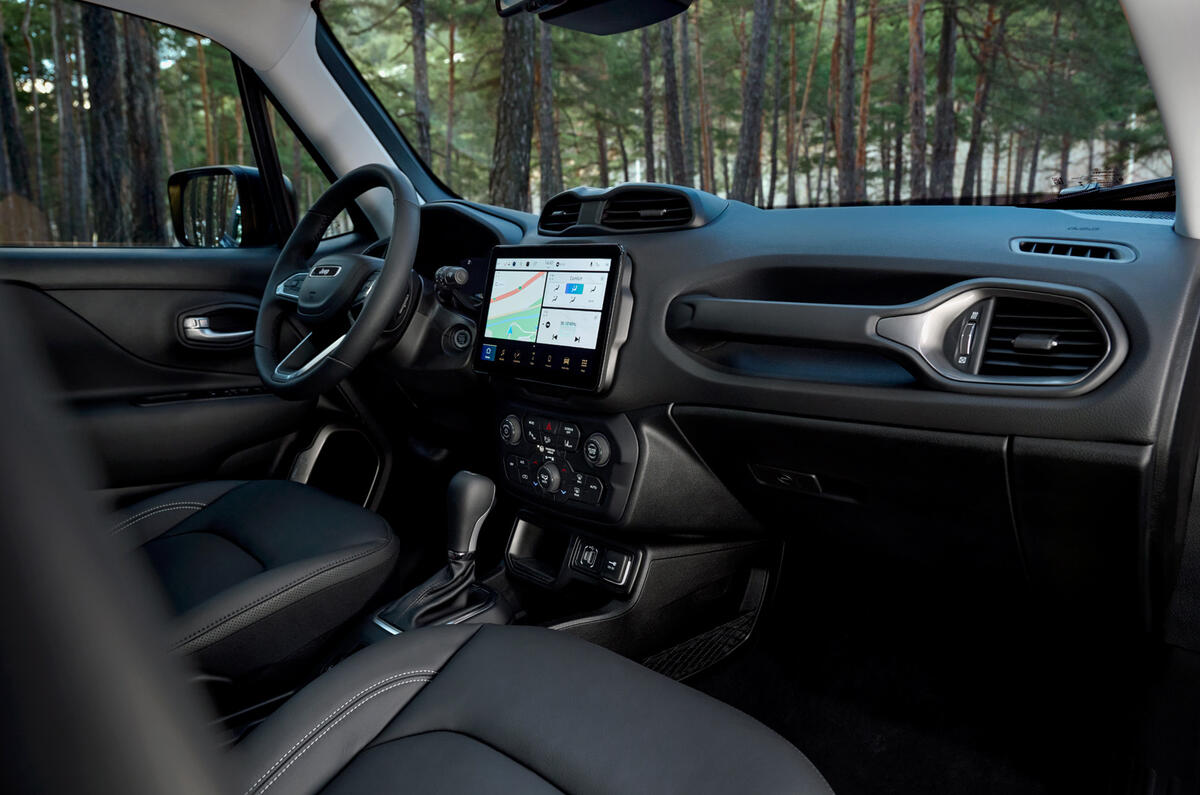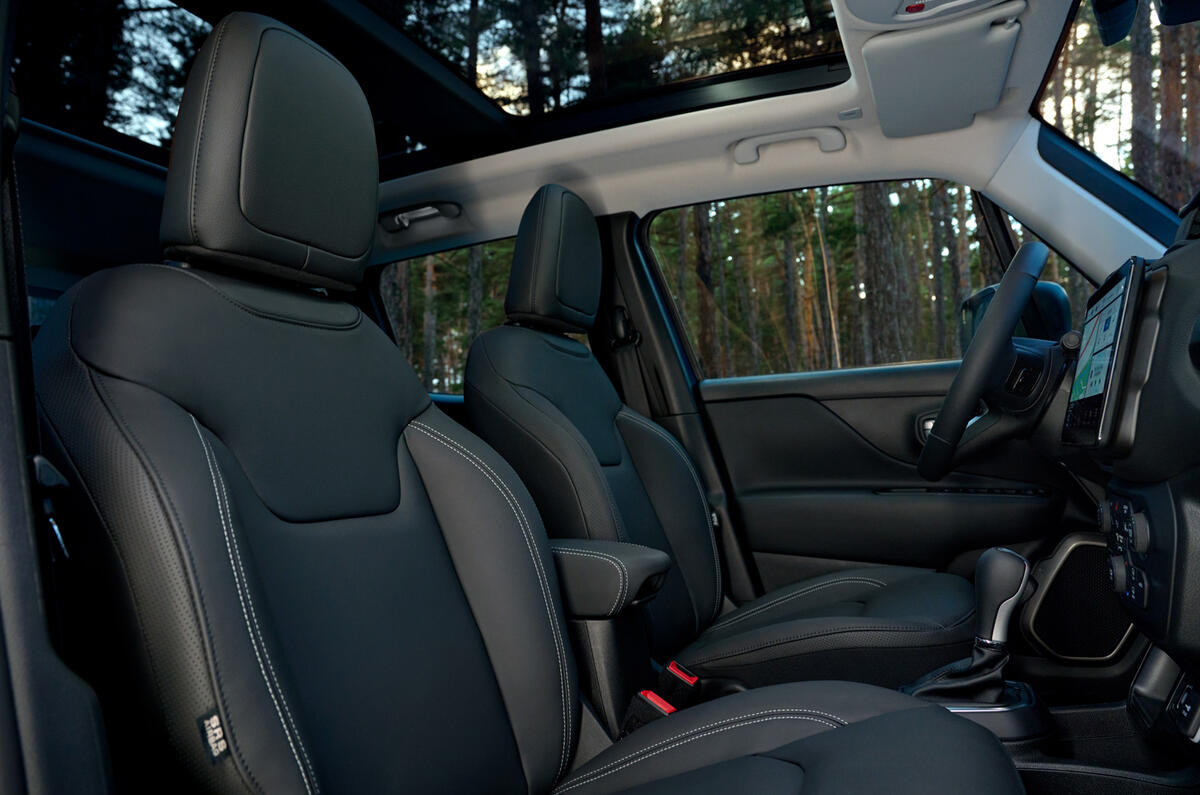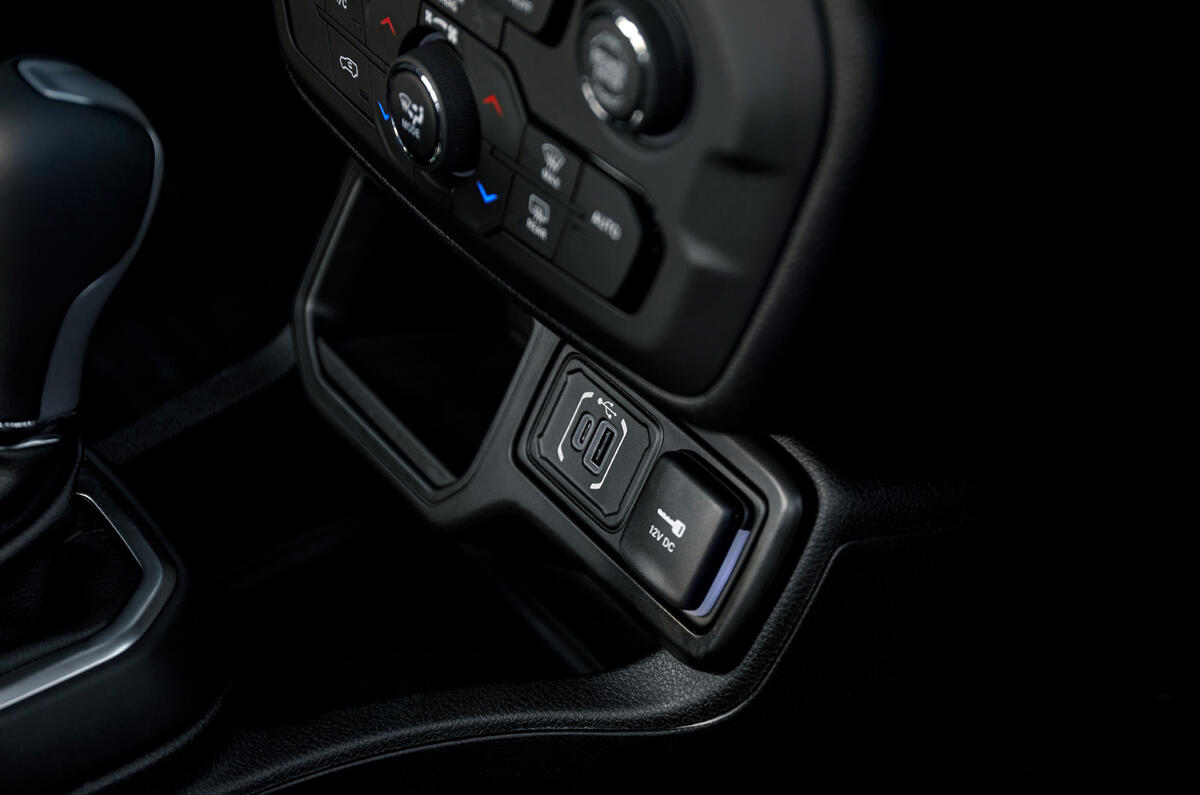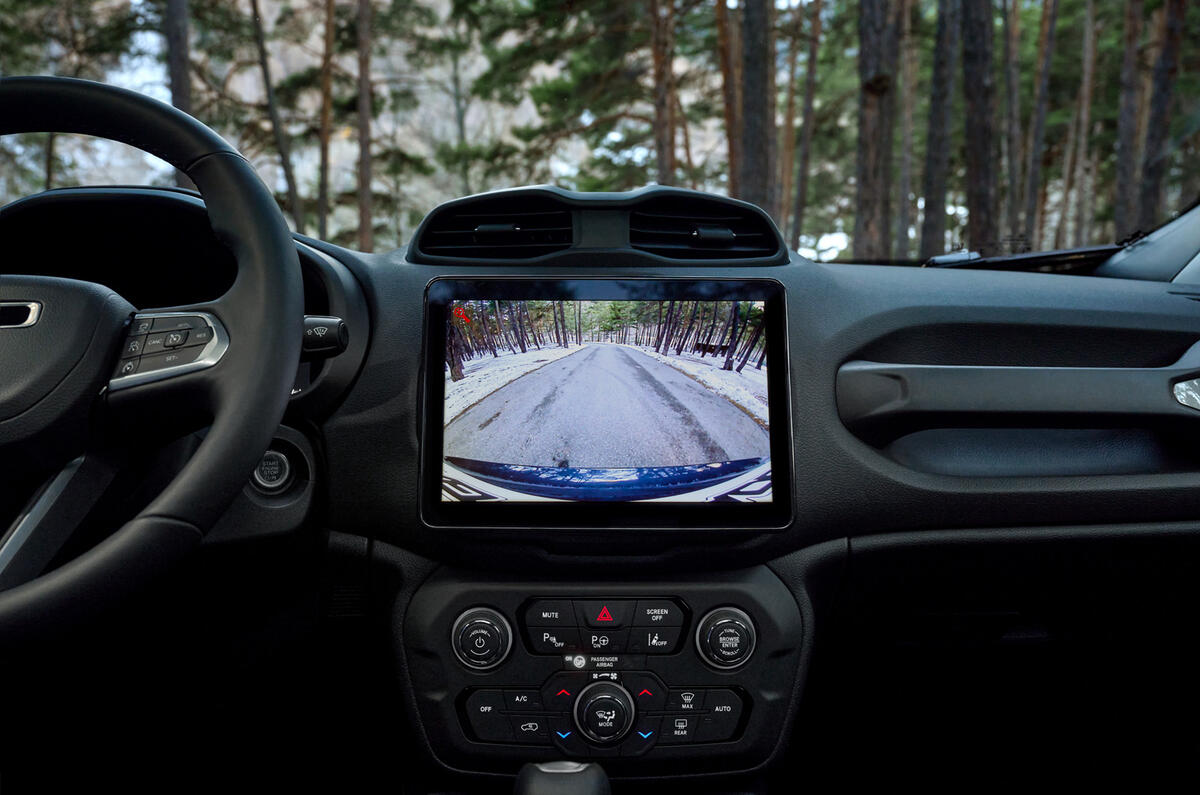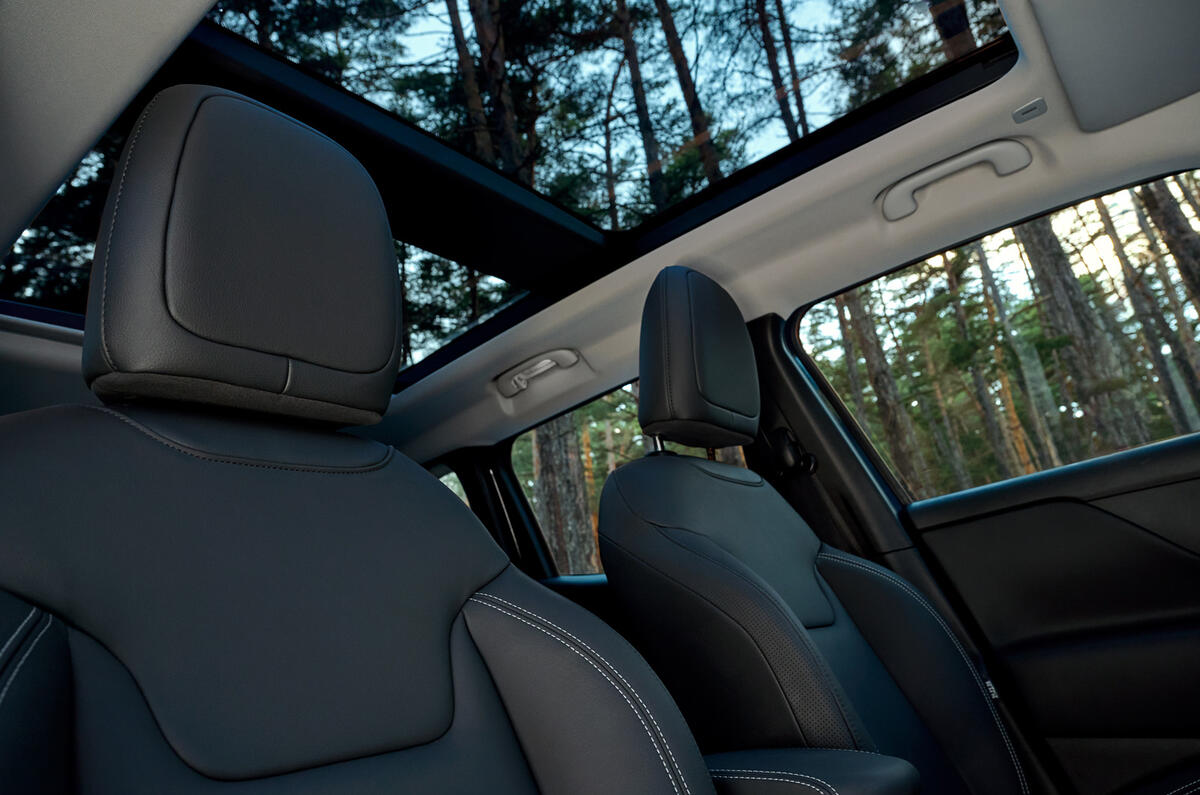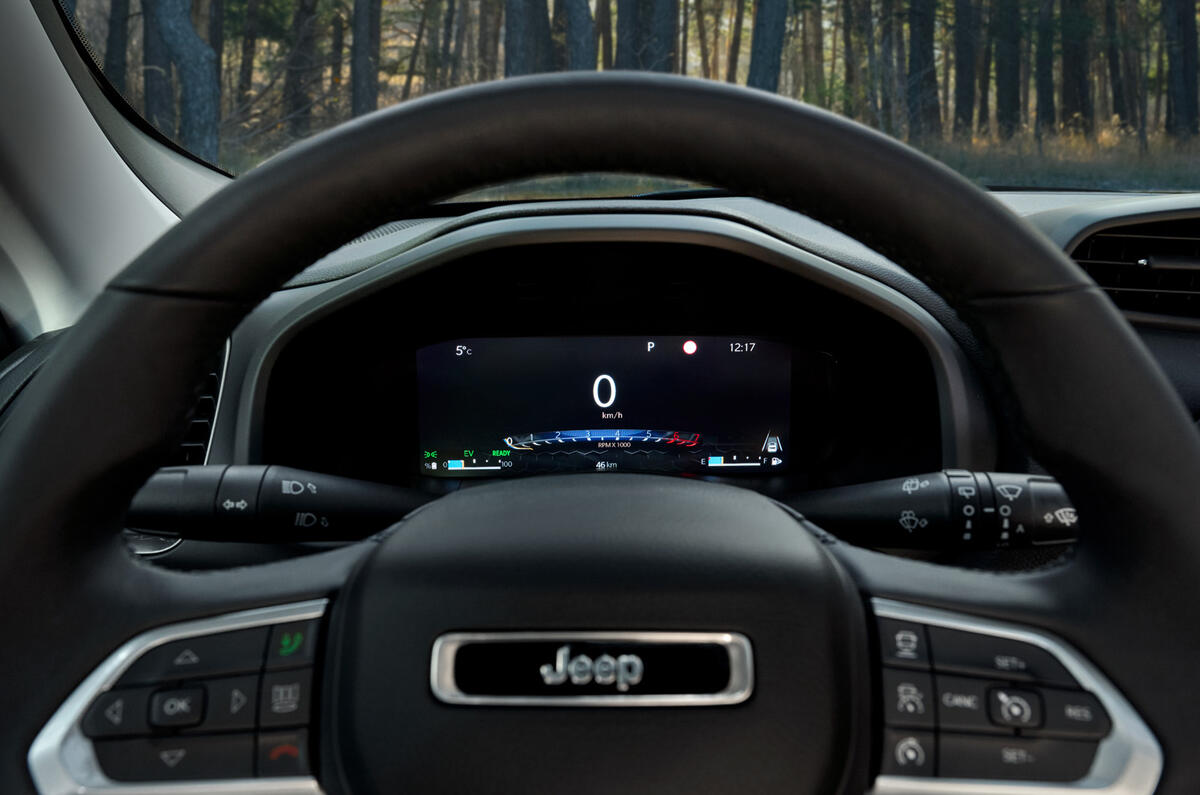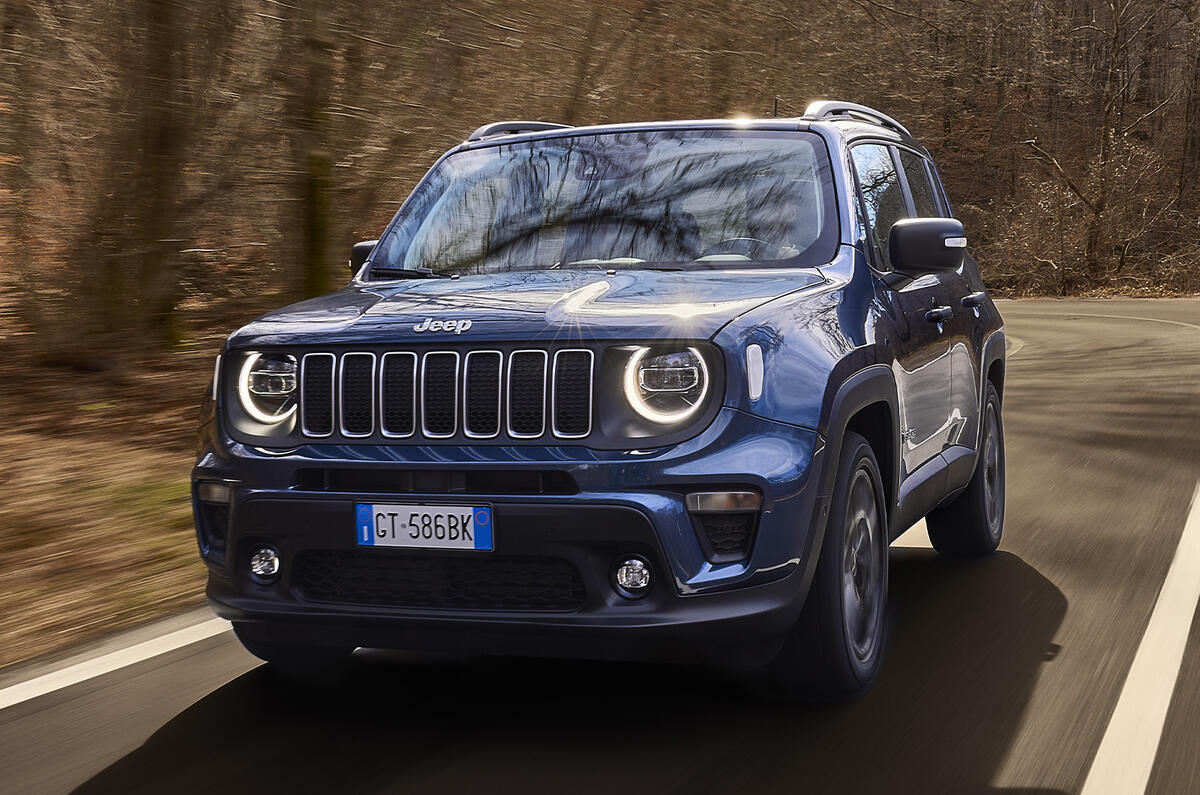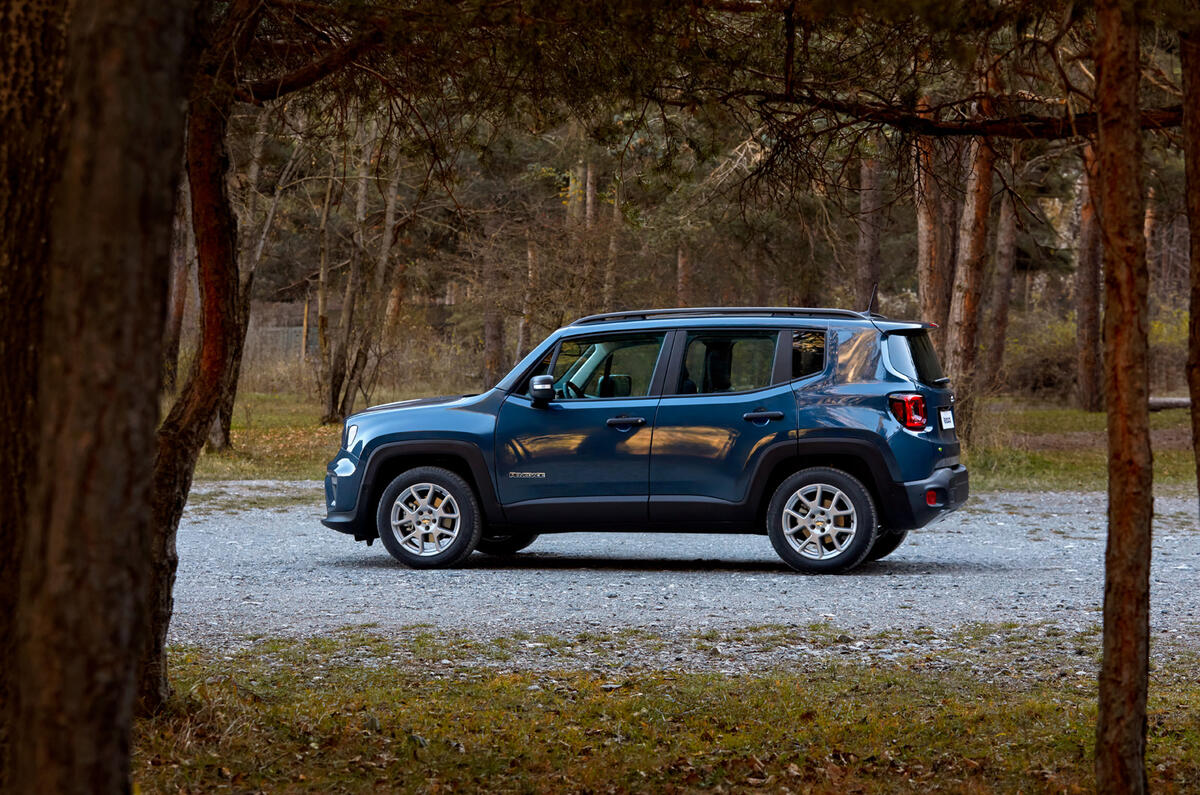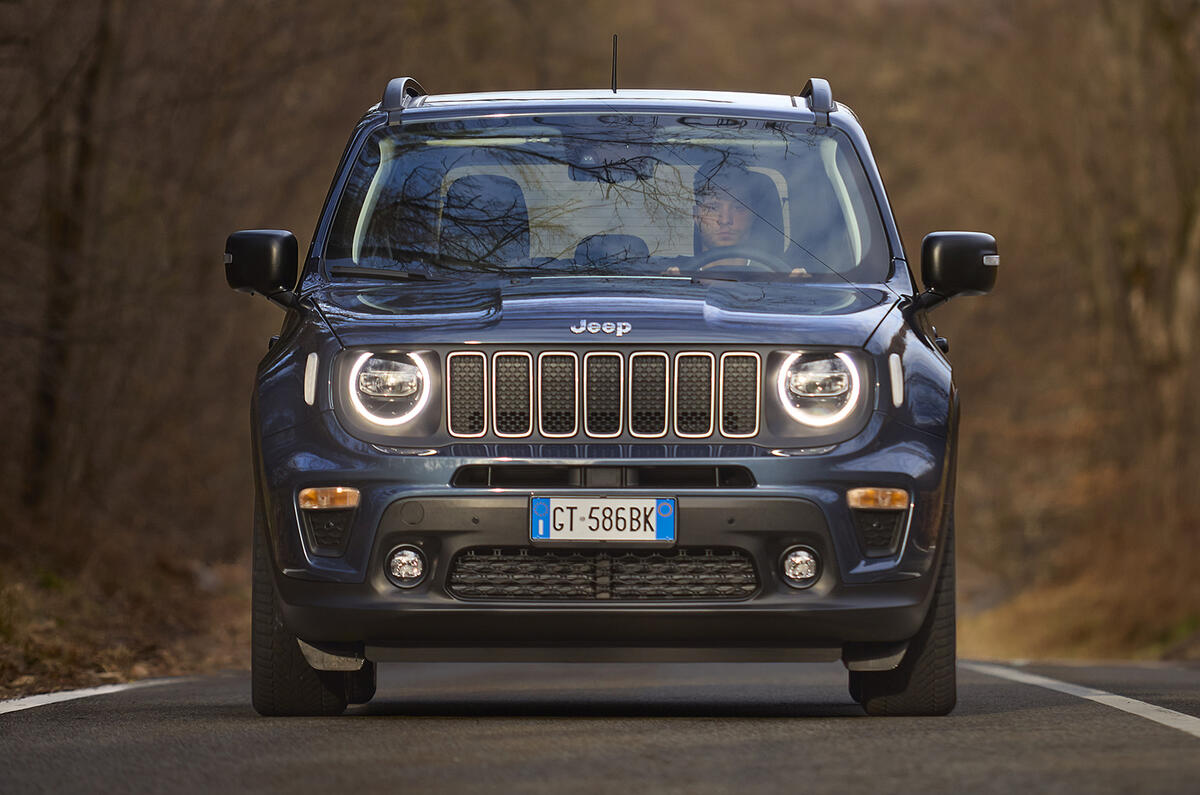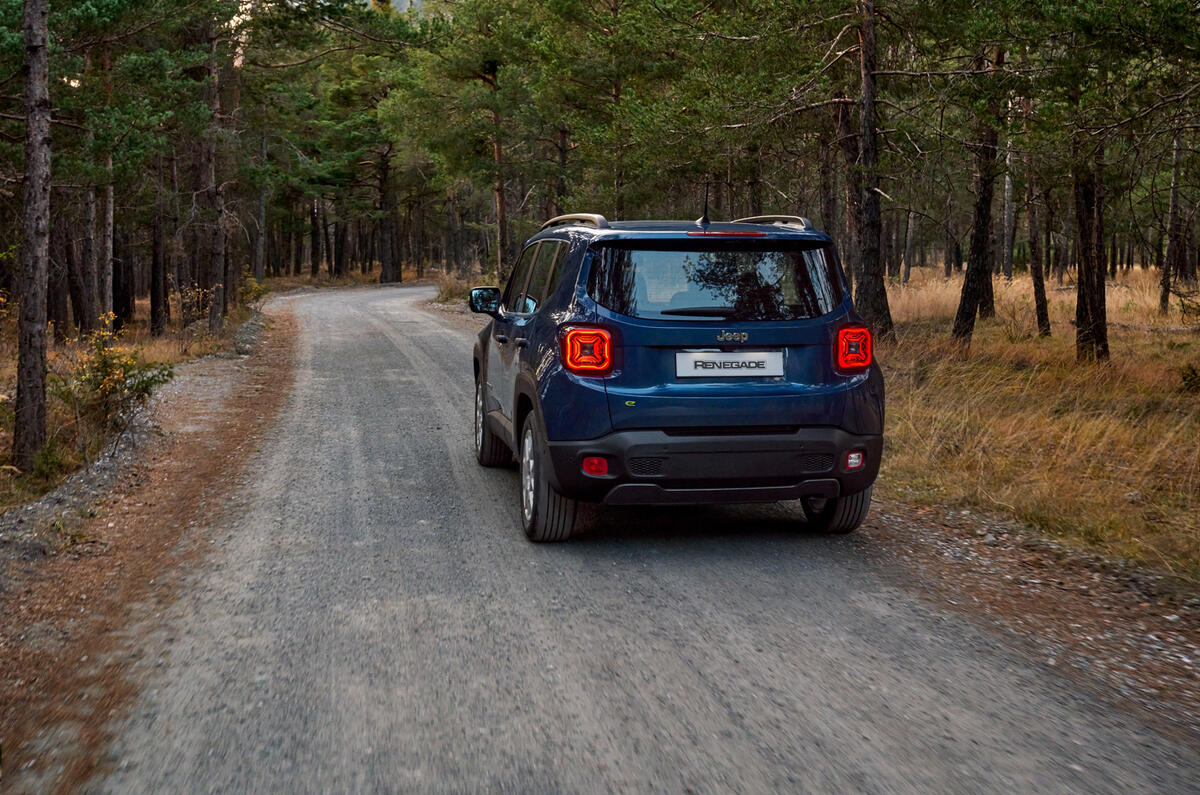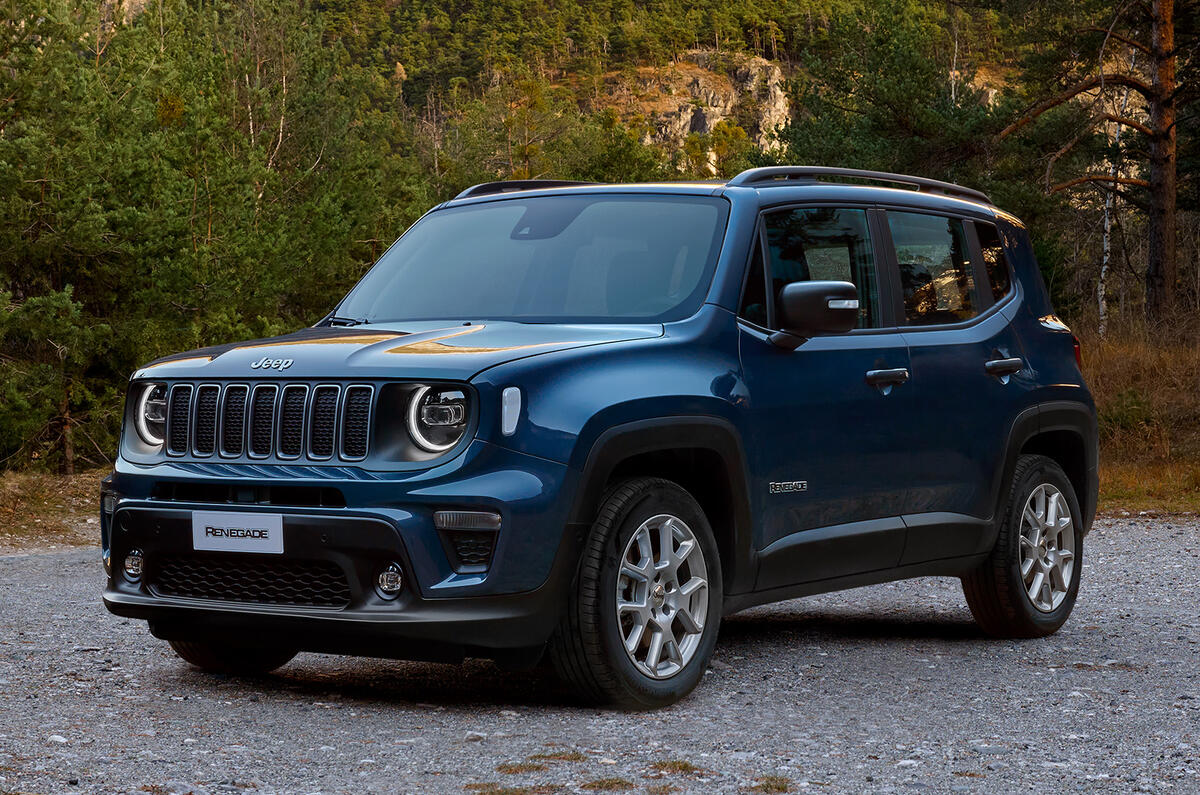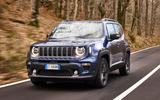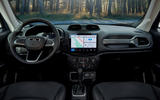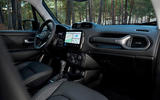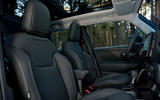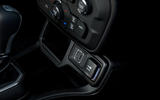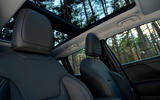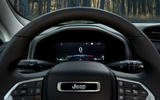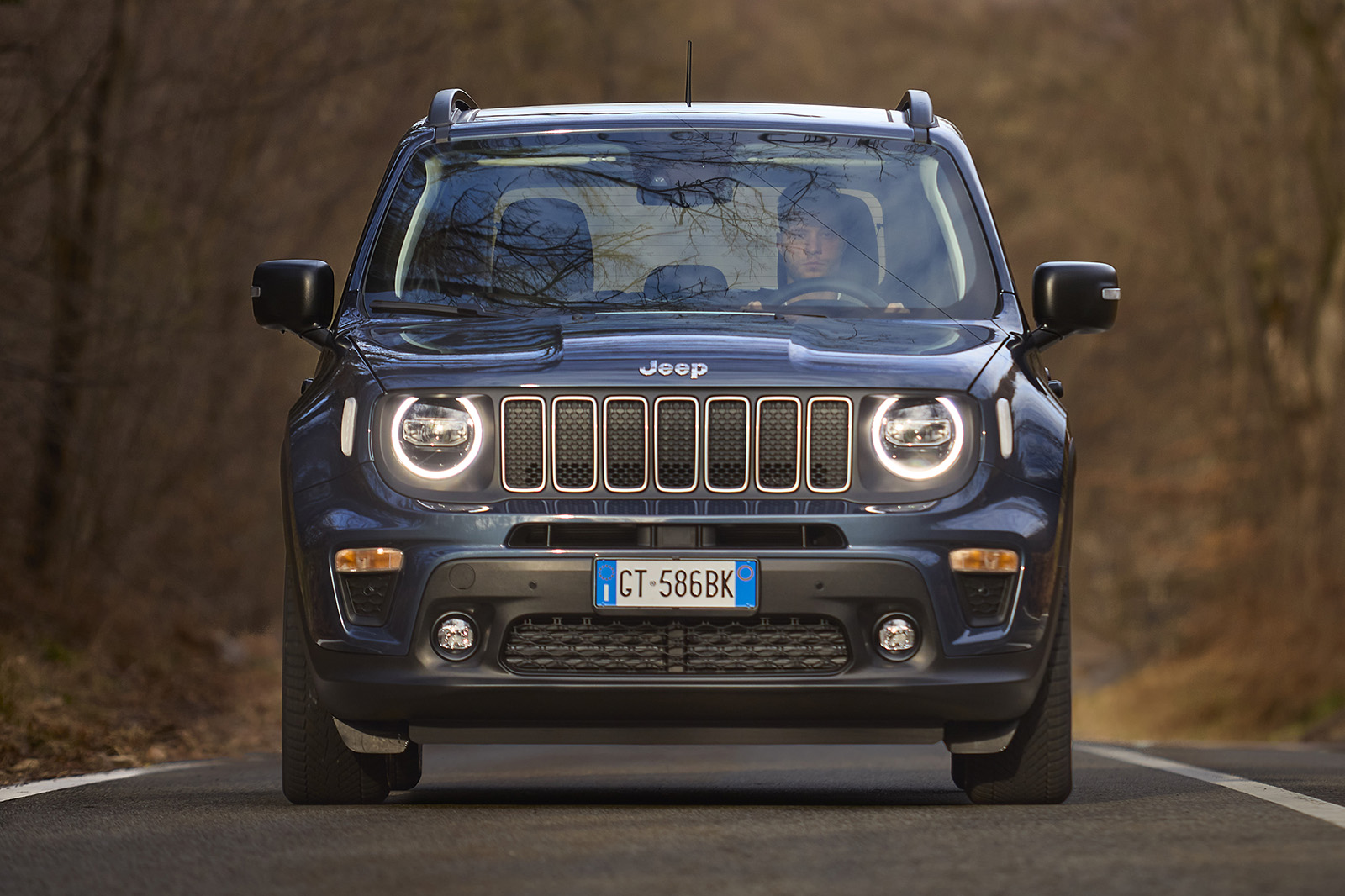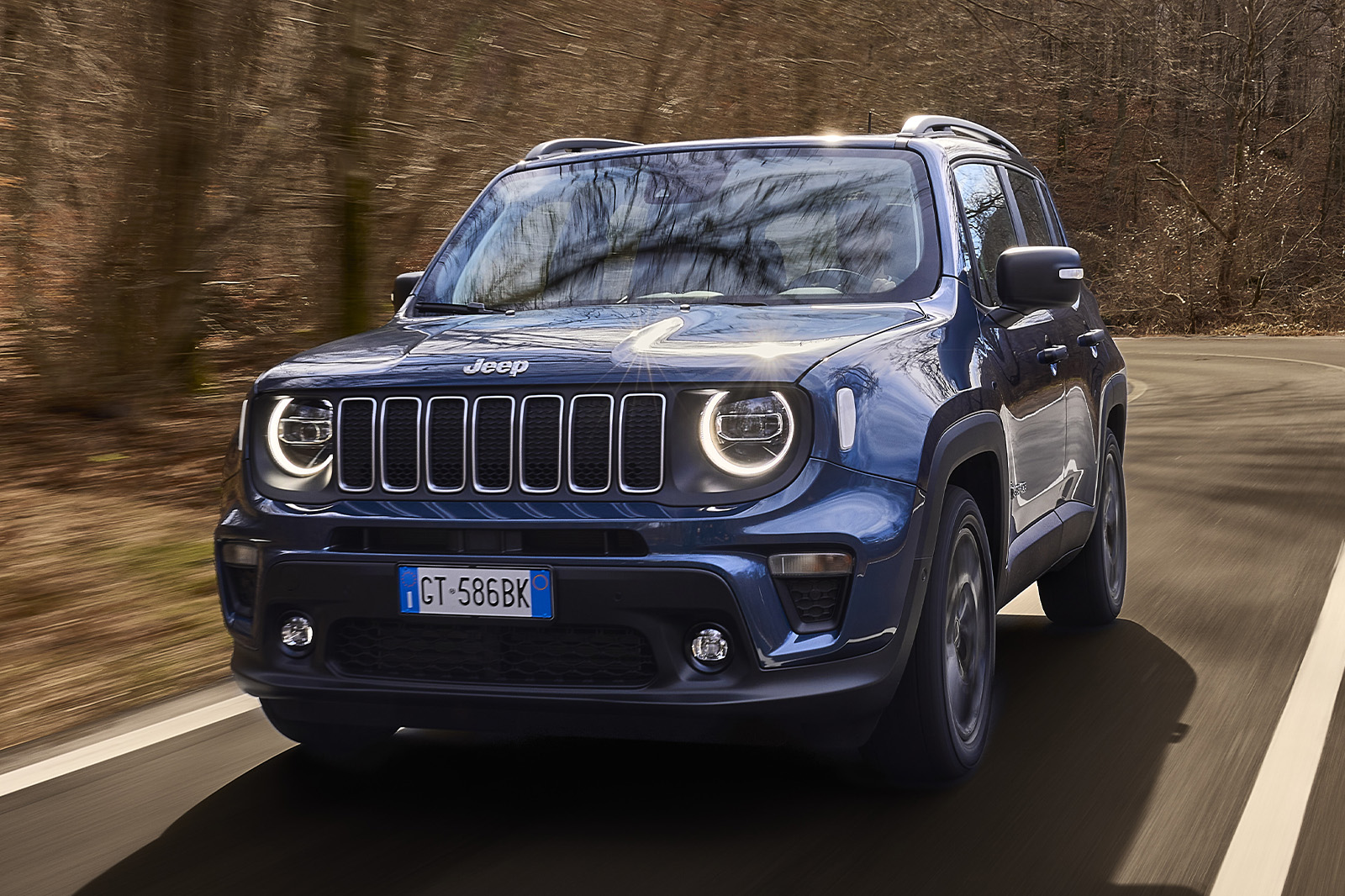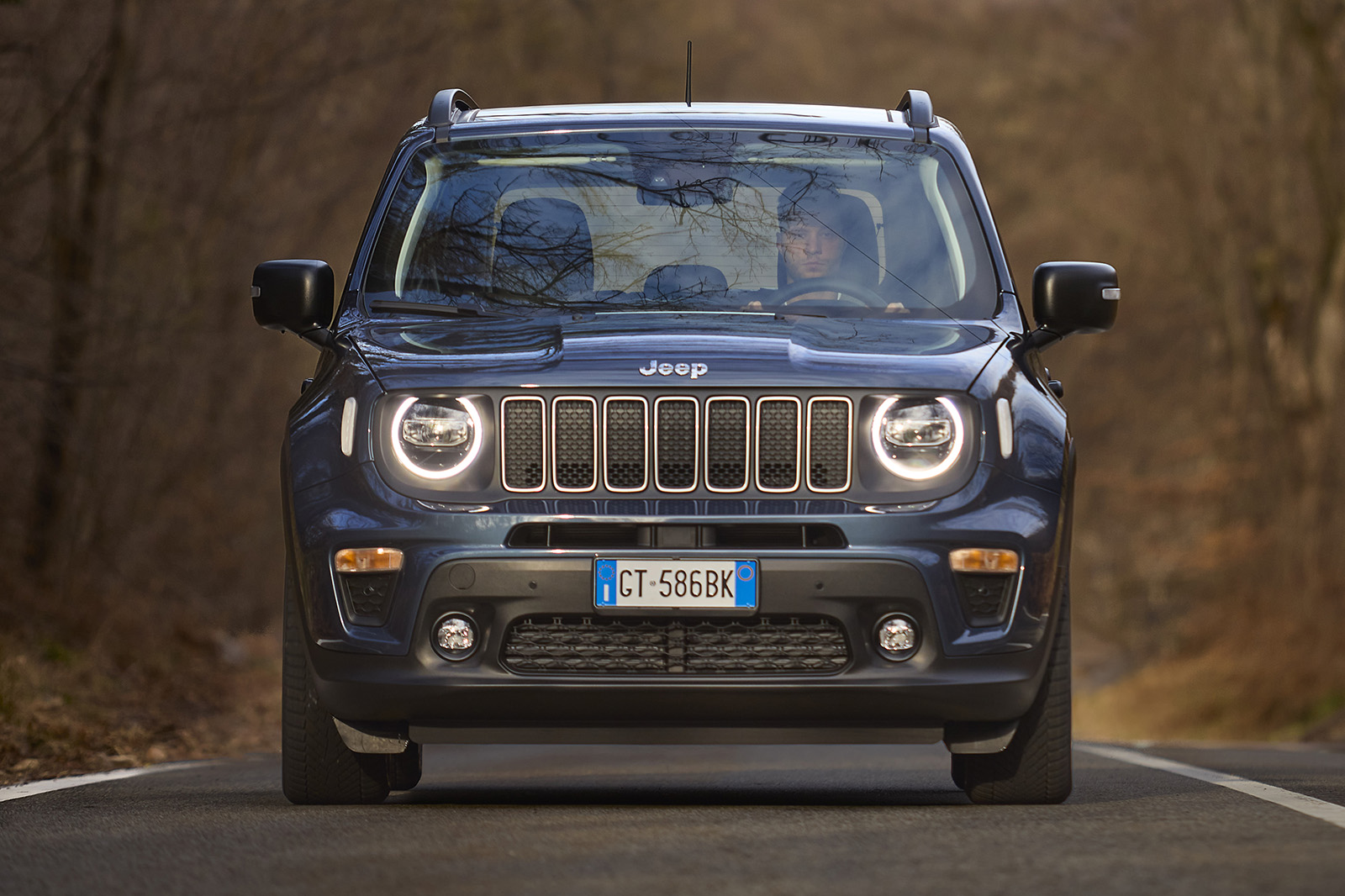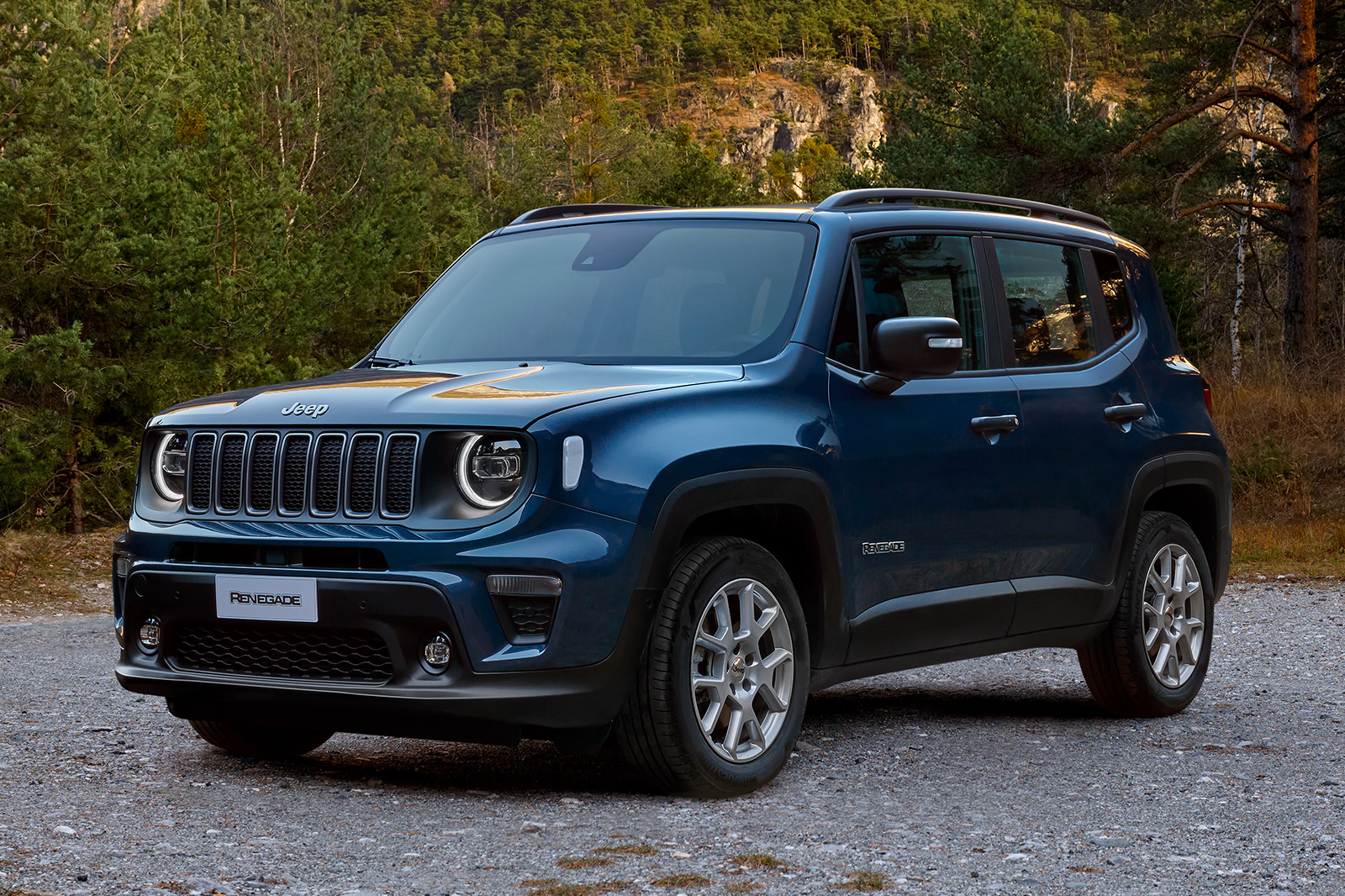Compact, boxy and pugnaciously cute as it may be, the Renegade just about counts as a proper four-seat, five-door family car. To squeeze three on its back seat would be a trial, but two younger adults fit just fine.
The relocation of the 12V battery to the side of the boot compartment, along with the packaging of the electric drive motor and power inverter under the floor, has affected boot capacity.
The storage space is a little narrow and shallow by class standards and there’s only 330 litres under the load-bay cover, which is a good deal less than even a Volkswagen Golf hatchback offers until you start folding seats and loading to the roof.
However, there is space for a full-sized spare wheel under the floor if you want one. If you don’t, the split-level boot floor makes the best of what storage volume there is.
The driving environment is quite distinctive, characterful and colourful in places, although some notable low points on perceived quality rather betray this Renegade’s status as ostensibly a pretty cheap crossover with an expensive powertrain.
Luckily for Jeep, its cars have always had functional cabins finished quite sparsely and with plain, tough materials.
The Renegade’s certainly feel quite plain; not always so tough or hard-wearing, though.
The shiny, wobbly mouldings used around the steering column are like those that other manufacturers only fit to prototypes. Elsewhere, flimsy, rough-feeling seat adjustment levers, dull-looking ‘leathers’, wobbly exterior mirrors and hollow-sounding doors might leave a slightly sour taste in your mouth.
The driving position is medium-high, granting good visibility in most directions, on a broadly comfortable driver’s seat that lacks some adjustability.
The secondary controls are chunkily proportioned. Having a good-sized scroll knob for the touchscreen infotainment system, for example, would be useful when driving in gloves or with dirty hands.
Jeep’s alterations to the instrument pack for the PHEV version of the Renegade didn’t seem to make quite so much sense to our testers. By removing the standard car’s analogue speedometer and replacing it with a fixed ‘power/ charging gauge’, it has taken away something useful and replaced it with something at least a bit superfluous.
Being told how hard the car’s powertrain is working or regenerating power at any one time seems a little needless when the position and action of your right foot can inform you just as well.
That’s true, particularly considering that the digital speedometer that has been added is generally given too little prominence on the wider instrument layout, although that does depend on the display mode you’ve chosen for the slightly antiquated-looking digital trip computer.
Jeep Renegade 4xe infotainment and sat-nav
All Renegade models were previously offered with a 7.4in central driver display and an 8.4in ‘UConnect’ touchscreen with a factory navigation system, an in-car wi-fi hotspot and smartphone mirroring for both Apple and Android handsets.
In 2024, the brand upgraded this system to a new, larger 10.1in touchscreen which ahs appeared in the larger, more premium Jeep Compass, paired with a 10.25 digital driver’s display behind the steering wheel. Both screens are 40% larger than before.
There’s also a new USB port to fit both Type-A and Type-C connections, though the brand has also introduced wireless phone connectivity too, which is a big plus.
The two new screens are a big upgrade compared to the previous system. Both are crisp and clear with minimal input lag and are very easy to use and customise to your liking, but they’re also a noticeable step up from the standard touchscreen system used in other Stellantis models.
Thankfully, the brand has opted against removing rotary climate dials and buttons, which, when used in combination with the upgraded infotainment systems, make for a logical and easy-going user experience.



